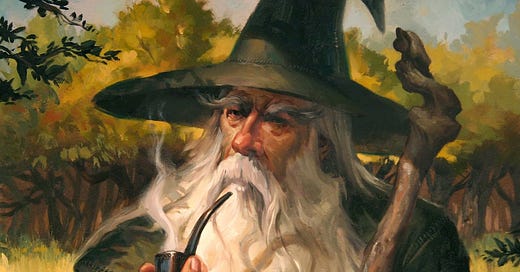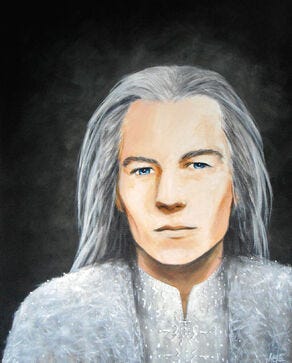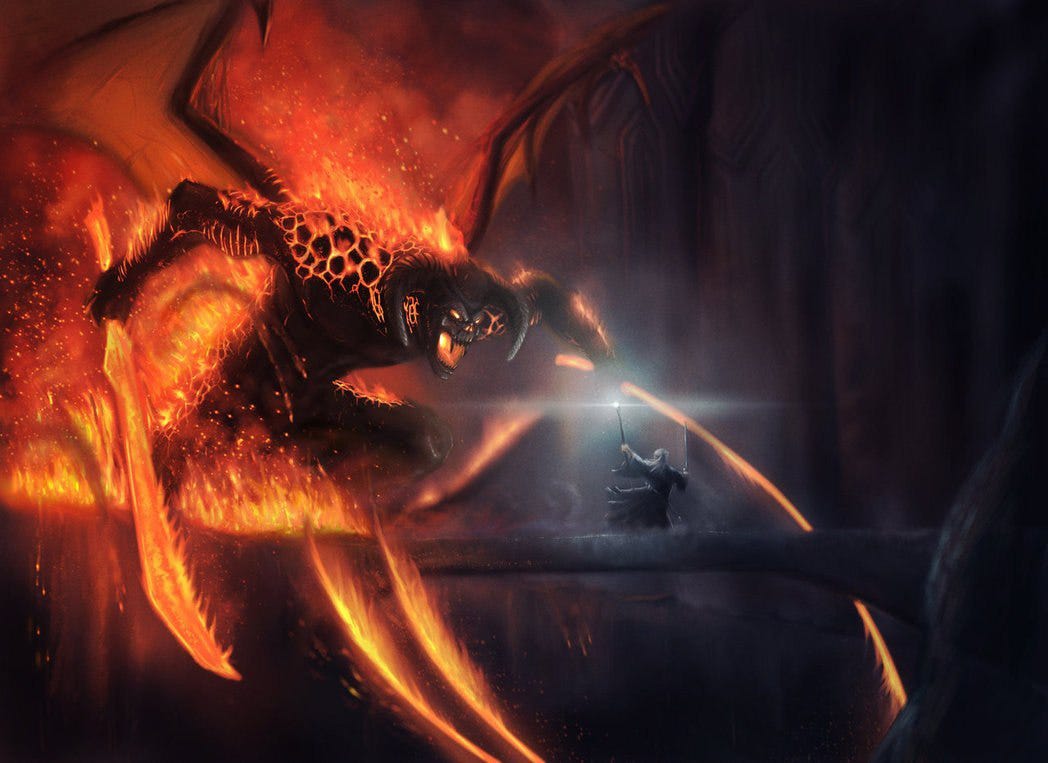“It is not despair, for despair is only for those who see the end beyond all doubt. We do not.” - Gandalf
Gandalf the Grey, The Grey Pilgrim, Mithrandir, and the Wandering Wizard are just a few of the names that Gandalf is referred to as in The Lord of the Rings. But Gandalf, whose actual name is Olórin, is not actually a wizard. Men and hobbits call him a wizard due to their perception of his “magic”, because they do not understand his true nature. Gandalf is a Maia, an angel who chose to descend into the World in the beginning. More specifically, he is one of the five Istari, Maiar who came to Middle-Earth disguised as cloaked old men. They were called wizards by the children of Ilúvatar: the white wizard, grey wizard, brown wizard, and two blue wizards. Their mission was to give aid to the free peoples of Middle-Earth in their fight against The Dark Lord Sauron, and to steward the race of men to inherit the Earth as the race of elves fade away. But four of the Istari failed in their mission over the following centuries. Saruman, the white wizard gave into his desire for power and abandoned Ilúvatar to serve Sauron. Radagast, the brown wizard forgot his mission to tend to nature. And the two blue wizards wandered into the far East and were never seen again. Gandalf was the only one who remembered his duty.
“Are they not all ministering spirits sent forth to serve, for the sake of those who are to obtain salvation.” - Hebrews 1:14
One of the primary roles that Gandalf fills is that of advisor. He counsels the leaders of the elves, dwarves, and men, aiding them in times of need. Those who listen to him increase in wisdom.
Gandalf often comforts those who are fearful or are in distress.
Gandalf also comes to the aid of those in physical danger. He fights with the Fellowship in the mines of Moria, rescues the survivors of the siege of Helm’s Deep, and leads the army of Gondor in the defense of Minas Tirith, as well as fighting in the last stand at the Black Gates.
“And the angel answered him, ‘I am Gabriel, who stand in the presence of God; and I was sent to speak to you, and to bring you this good news.” - Luke 1:19
Gandalf constantly travels many miles to deliver messages to the different kingdoms of Middle-Earth.
“Bless the Lord, O you his angels, you mighty ones who do his word, hearkening to the voice of his word!” - Psalm 103:20
Gandalf, unlike his companions, remains faithful and serves the will of the Lord.
“The poor man died and was carried by the angels to Abraham’s bosom.”
- Luke 16:22
Gandalf accompanies the last ship leaving for Aman, escorting the righteous to their final resting place.
“For we are not contending against flesh and blood, but against the principalities, against the powers, against the world rulers of this present darkness, against the spiritual hosts of wickedness in the heavenly places.” - Ephesians 6:12
Gandalf gives courage to the fearful in the face of overwhelming evil, and he gives spiritual comfort to those with inner turmoil.
He performs an exorcism on King Théoden to cast out Saruman, who had possessed the king.
He sacrifices himself to defend the Fellowship from the Balrog of Khazad-Dum. When he turns to face off against the Balrog, he declares himself “a servant of the Secret Fire (Holy Spirit).”
Gandalf is one of the best characters in Tolkien’s mythology. In his days in Aman, before he was sent to Middle-Earth, he was afraid of Sauron. This fear stayed with him throughout the next few millennia. He grows accustomed to a quiet and peaceful lifestyle, which is why he is so fond of the hobbits. He never forgets his mission, but he is reluctant to face off against the evils that await him. That is why the moment on the bridge in Moria is so significant. In that moment he accepts his fate, and fully commits to carrying out the will of his Creator, fulfilling his mission.
Namarië
Michael






